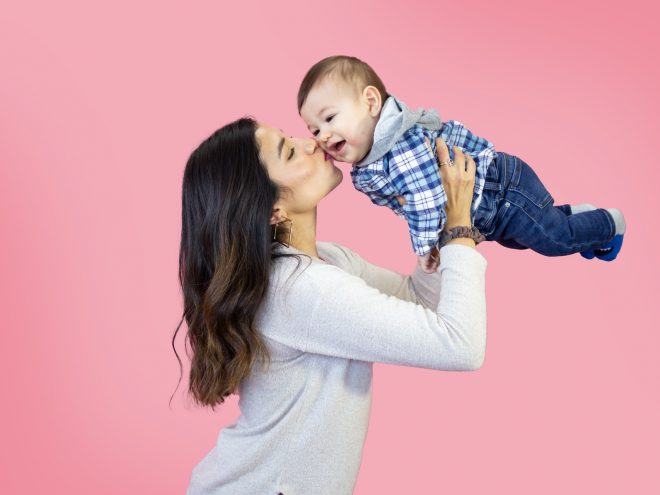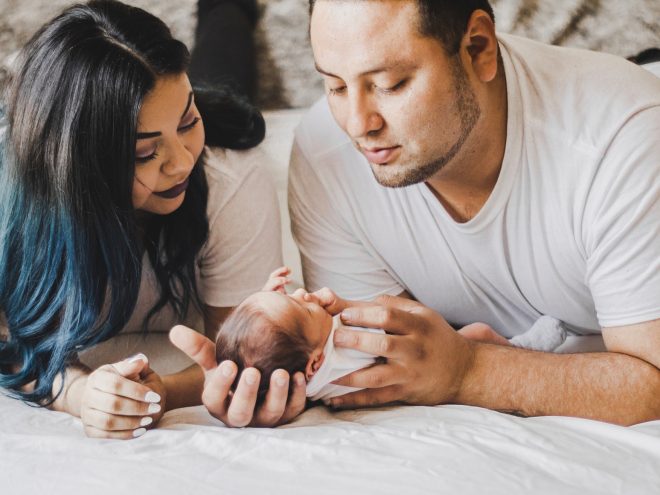During the first month of pregnancy, you’ll only be pregnant for two out of four weeks. That’s because pregnancy is counted from the time of your last period, but conception usually doesn’t occur until two weeks after your period.
During these first two weeks of development, you’ll experience several symptoms that can help you know if you’re pregnant. Not everyone has the same symptoms, and you won’t know you’re pregnant for sure until you’ve taken a test or seen a doctor.
Here are four symptoms you can expect during the first month of pregnancy.
- Missed Period
Early signs of pregnancy can be confusing because they often seem like period symptoms. Your period is a cycle of physical changes controlled by hormones. During the follicular phase of your period, estrogen and progesterone levels rise. Your body is preparing to be pregnant.
Around the mid-point of your cycle, your body ovulates, sending an egg down the fallopian tube in preparation for getting pregnant. If the egg isn’t fertilized within about 24 hours, your body starts to reduce hormone levels.
During the luteal phase of your cycle, you may experience sore breasts, fatigue, mood swings, and other PMS symptoms as your body prepares to shed the uterine lining your hormones prepared for a baby. This lining sheds during your period, and the cycle starts all over again.
If you miss your next period because you got pregnant during ovulation, you may experience similar symptoms to PMS. Most women with regular periods don’t skip unless they are pregnant, so a missed period is a good first sign that you may be pregnant.
- Spotting or Pain
After an egg is fertilized, it travels to your uterus and implants on the uterine wall. From there, it will be nourished by the thickened uterine lining your body prepared during the follicular phase of menstruation. The cells will divide, and your baby will begin to develop.
Implantation happens around seven days after the egg is fertilized. Many women describe feeling a sharp pinch or pain in their lower abdomen when an egg implants in their uterus. However, not every woman experiences this symptom.
When the egg implants, a small part of the uterine lining sheds. This sometimes leads to spotting that’s light pink or dark brown in color. Many women mistake this spotting as the beginning of their period, but spotting from implantation occurs almost a week earlier than your period should.
Many women also experience backaches or sore breasts in the two weeks following conception. However, these symptoms are common before your period, so soreness could also mean that you’re not pregnant. For best results, you should wait to take a pregnancy test until a week after you miss your period.
- Unusual Fatigue
During the first and last trimesters of pregnancy, most women experience unusual levels of fatigue. This tiredness can be an early indication of pregnancy, and it’s a different level of exhaustion than the fatigue women often experience during PMS.
During your usual cycle, the levels of estrogen and progesterone in your body start to decrease after ovulation. However, if you become pregnant after your body ovulates, your hormone levels will continue to rise.
These rising hormones will affect your body in a number of ways, including making you feel tired. Progesterone is a natural sedative, so simply an increased amount of this hormone in your system will cause you to feel tired. The changes this hormone causes in your body can also make you feel tired.
Your body is working hard to create a baby, so it makes sense that you’ll feel more fatigue during pregnancy than usual. Thankfully, the fatigue usually lets up during the second trimester. If you’re experiencing unusual levels of fatigue, it could be an early sign that you’re pregnant.
- Unusual Cravings
During pregnancy, many women experience unusual shifts in their relationship with food. For example, some women may start craving combinations of foods they don’t usually eat together, or they may suddenly stop liking a food that they’ve always enjoyed.
Although there’s some debate about what causes food cravings during pregnancy, most doctors agree that hormonal changes are again the dominant factor behind this symptom. Changes in your hormones can also affect your emotions and lead to cravings for sugar and salty foods.
During pregnancy, it’s okay to indulge in cravings as long as the food you want isn’t harmful to your baby. In fact, it’s possible that food cravings are your body’s way of getting the nutrients it needs. However, cravings should never replace good nutrition, and you should never fulfill cravings for items that aren’t food.
If you notice yourself craving things you don’t usually want to eat, it could be an early sign that you’re pregnant. However, some women also experience this symptom during PMS, when their estrogen and progesterone levels are decreasing and before their period starts. On its own, this symptom isn’t enough to let you know if you’re pregnant.
How to Know for Sure
If you missed your last period and are experiencing several of the symptoms on this list, it’s possible that you’re pregnant. However, many symptoms of early pregnancy are similar or identical to period symptoms.
You won’t be able to know for sure if you’re pregnant until you’ve taken a pregnancy test or seen a doctor. Until you find out if you’re pregnant, avoid alcohol and any other substances that could damage your baby’s development.
After getting pregnant, you’ll start experiencing symptoms almost immediately. However, only time will tell if you’re pregnant or just dealing with PMS symptoms. If you think you might be pregnant, hang in there – you won’t have to wait long to find out for sure.




